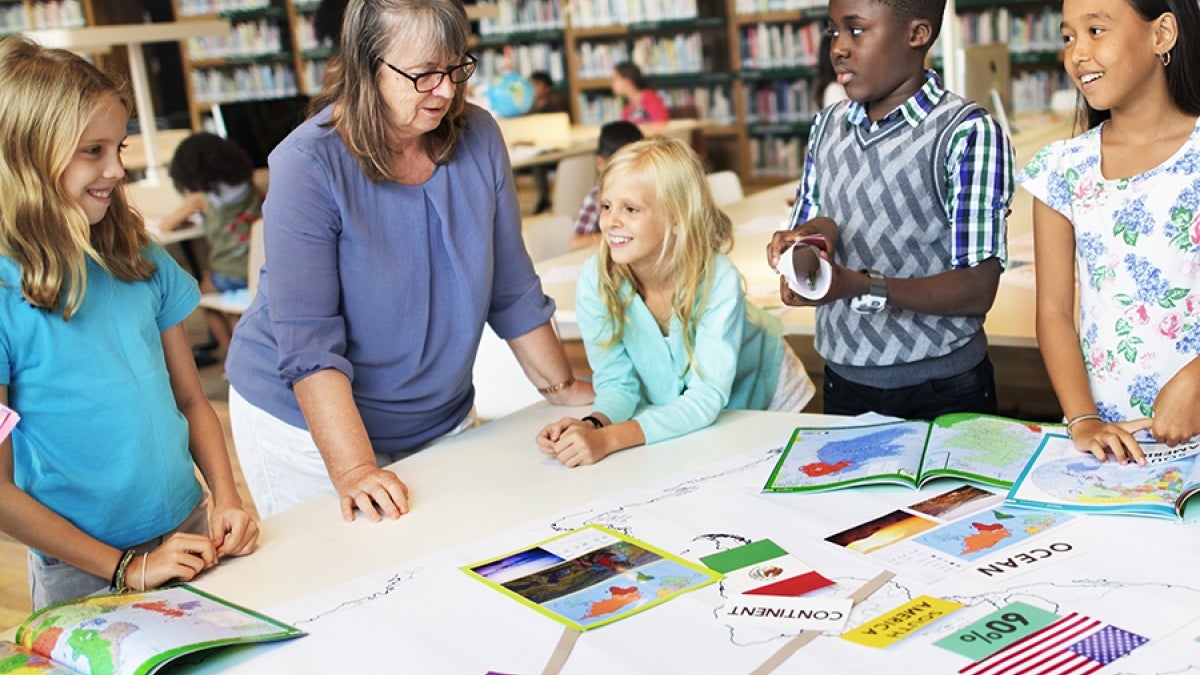Community of educators gathers to battle stress, trauma in the classroom

A recent survey from the Maricopa County superintendent’s office found that 80% of educators reported feeling severe or extreme levels of stress this year.
The last few years have been difficult for everyone dealing with the collective trauma of the COVID-19 pandemic — and educators are no exception. Challenged by rapid changes in the educational system, such as virtual learning, studies show that educators are facing dramatically increased stress levels.
A recent survey from the Maricopa County superintendent’s office found that 80% of the 2,500 respondents reported feeling severe or extreme levels of stress this year. This is a 70% increase from the pre-pandemic levels reported in 2019.
Last Tuesday, nearly 300 educators gathered to support one another and share strategies for positive improvement at the sixth annual Trauma Sensitive Schools Symposium. State and district leaders, administrators, school mental health professionals and teachers of all grades engaged with one another through networking sessions, community building and mindfulness activities.
The event, which is typically focused on bringing awareness to trauma and its effects in the classroom, helped educators expand their unique abilities to create needed systems of wellness.
The theme was “Mind Full or Mindful: Systems Change to Support Wellness.” Speakers highlighted ways to improve the educational system through empowerment, collaboration and safety. The event also emphasized the importance of emotional co-regulation, a process in which adults step in to help children process and manage complicated emotions.
“Science shows us that the ability to learn is influenced by family and community values and experiences," said co-organizer Sarah Lindstrom Johnson, an associate professor at Arizona State University's T. Denny Sanford School of Social and Family Dynamics. "In order to improve educational outcomes, it is therefore critical for the educational system to engage in a more meaningful way with families and communities.”
Related: ASU student attends Pacific Sociological Association conference
The event included several keynote speakers, such as Lindstrom Johnson, Marc Brackett, the founder and director of the Yale Center for Emotional Intelligence and a professor in the Child Study Center of Yale University, and Angie Burleson, executive director of the Arizona Adverse Childhood Experiences (AZ ACEs) Consortium.
Brackett presented on emotional intelligence and its use in the classroom, while Lindstrom Johnson followed with a presentation on the importance of family engagement.
Afterward, Burleson spoke on the impact of adverse childhood experiences. Participants then joined breakout sessions hosted by a diverse array of professionals covering a range of topics. Sessions included the following:
- “Building a Healing Village 101,” led by Michelle Campuzano from the Roosevelt School Board and Michelle Sambrano from Southwest Behavioral & Health Services.
- "Engaging Every Family,” led by Patsy Rethore-Larson from the Arizona Department of Education.
- "Motivational Interviewing: Engage, Connect, and Empower,” led by Jeremiah Kaplan from the ASU Southwest Interdisciplinary Research Center.
Other breakout sessions covered topics such as resilience in American Indian students, the power of student connection and the relevance of attachment theory.
Participants learned strategies to take back to the classroom, especially regarding emotional regulation. Keynote speaker Brackett advised participants to be “emotion detectives” instead of emotion judges, highlighting the value of using emotions as a critical tool to understand circumstances and apply solutions. Attendees learned the importance of identifying specific emotions, sometimes through helpful tools such as a mood meter.
Burleson shared some insight, saying, “A child cannot out-regulate an adult.”
The event was jointly organized by the ASU Positive Family Support CARE program (funded through a grant from the Institute for Educational Science), the Arizona Department of Education and the AZ ACEs Consortium.
More Health and medicine
College of Health Solutions medical nutrition student aims to give back to her Navajo community
As Miss Navajo Nation, Amy N. Begaye worked to improve lives in her community by raising awareness about STEM education and…

Linguistics work could improve doctor-patient communications in Philippines, beyond
When Peter Torres traveled to Mapúa University in the Philippines over the summer, he was shocked to see a billboard promoting…

Turning data into knowledge: How Health Observatory at ASU aims to educate public
This is how David Engelthaler described his first couple of months on the job as executive director of the Health Observatory at…